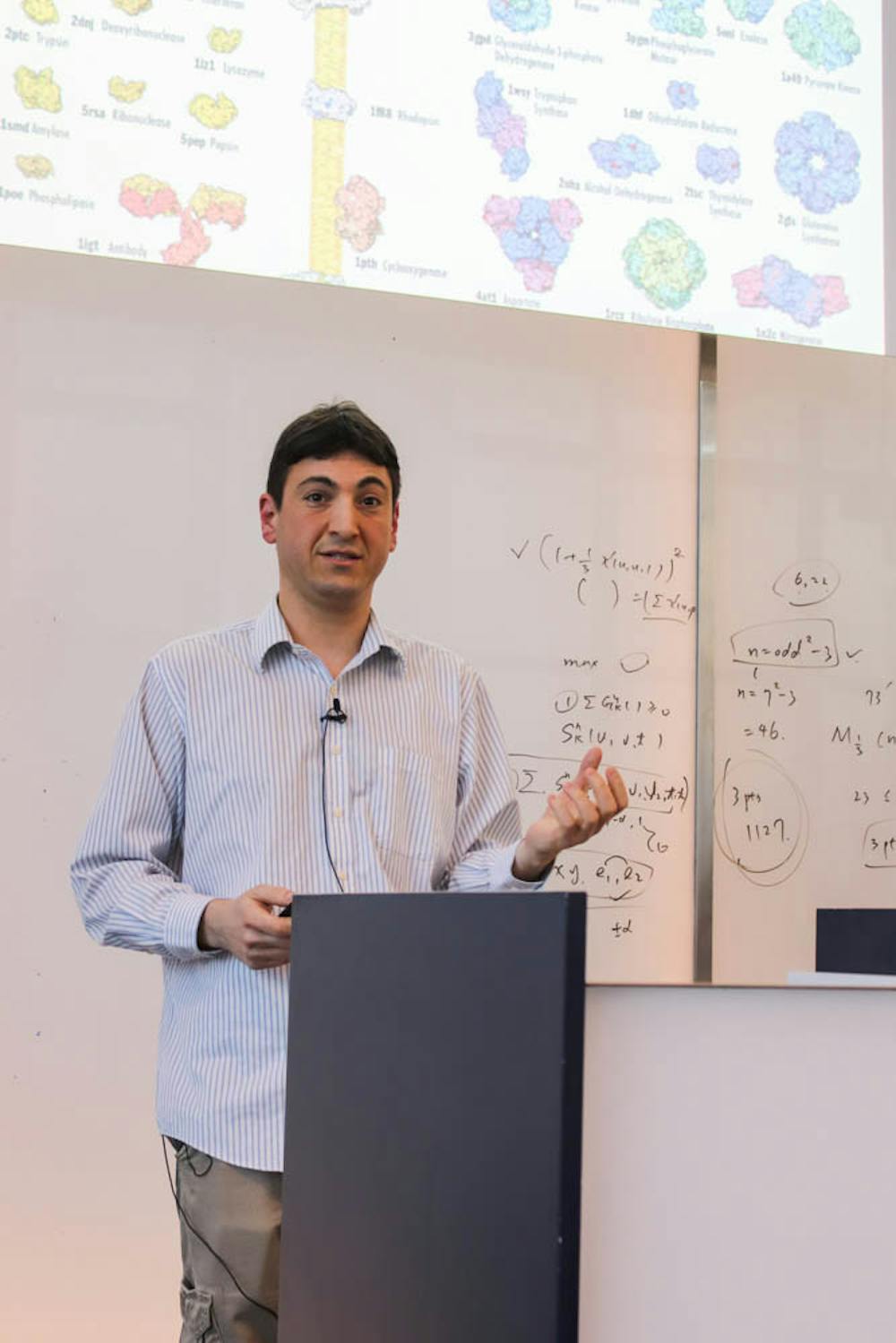Imagine playing a video game that also makes scientific contributions to the field of computational biology. Firas Khatib, assistant professor in the Computer and Information Science Department at the University of Massachusetts-Dartmouth, discussed just that in his talk, “Crowd Computing: Scientific discoveries by protein-folding game players” at the Institute for Computational and Experimental Research in Mathematics. Khatib’s program, Foldit, is a unique platform that integrates video games with protein folding to allow people all over the world to compete to devise an optimal protein fold for a given protein.
Khatib, the lead scientist of Foldit, emphasized that the program aims to build more accurate models of disease-related proteins.
“I think what’s exciting about Foldit is that it really demonstrates the power of citizen science and crowdsourcing,” he said, and added that there is currently an abundance of supercomputing strength, but Foldit focuses on harnessing human intelligence on a mass scale.
“When it comes to visual tasks … computers are really bad at that,” Khatib said. Identifying optimal protein folds, a visual task, is a skill that humans can sometimes provide more easily than computers. Furthermore, Foldit allows people with different perspectives to contribute to difficult problems. People who have no background in a field are more likely to implement unusual solutions, which sometimes turn out to be helpful, Khatib said.
Because Foldit relies on human brain power, an important part of the project is introducing it to large audiences. Foldit is a “great tool for education,” Khatib said. “Everybody loves video games — especially kids.”
Foldit has been used in award-winning projects by people all over the country, Khatib added. For example, a team of students at University of California-Davis used Foldit to build a biosensor that “detects rancid olive oil,” winning the grand prize at the 2014 iGEM international competition, Khatib said.
“I’m really impressed by the way (Foldit is) implementing this evolving model,” Woden Kusner, attendee and assistant professor of mathematics at Vanderbilt University, said after the event. “They’ve got a nice feedback loop going on with players and are able to get feedback from the scientific community.”
“There’s such a big Foldit community out there,” said Jan Rolfes, a postgraduate researcher from the University of Cologne. “If you present science in such a nice way, you can attract a lot of people and really make an idea quite popular.”
— Additional reporting by Cate Ryan





